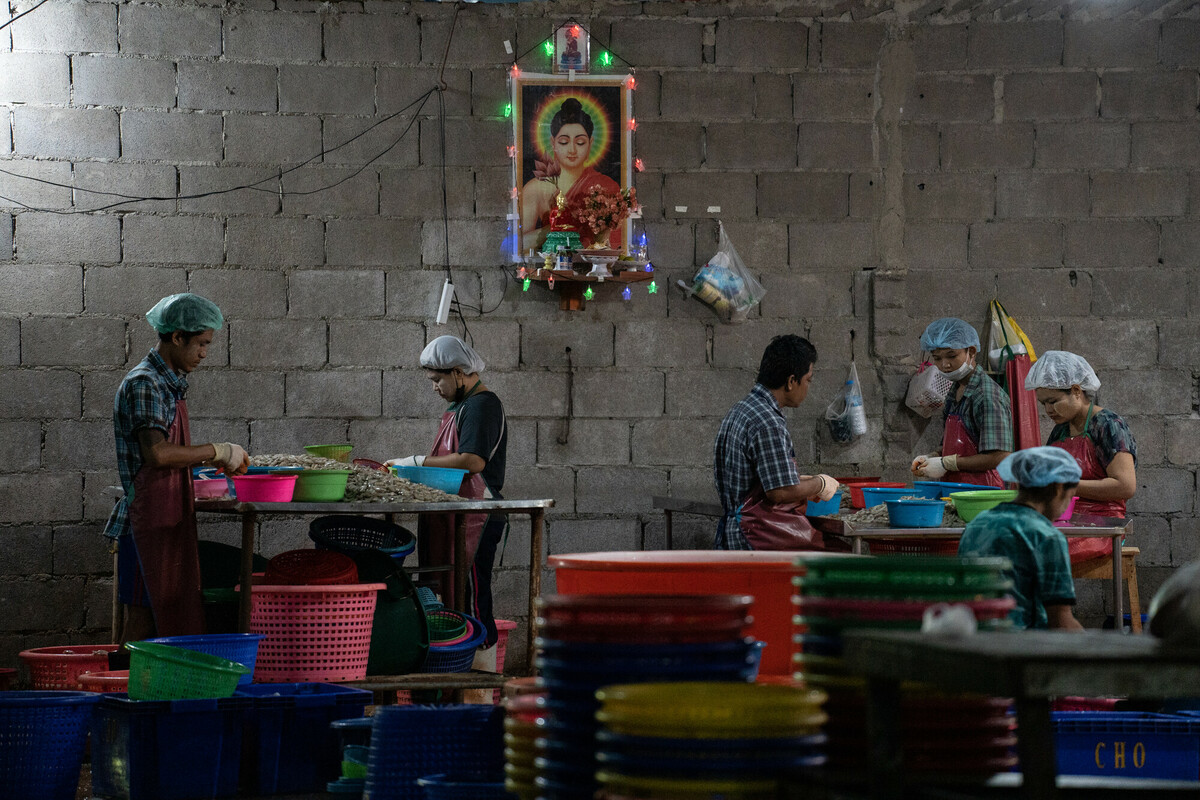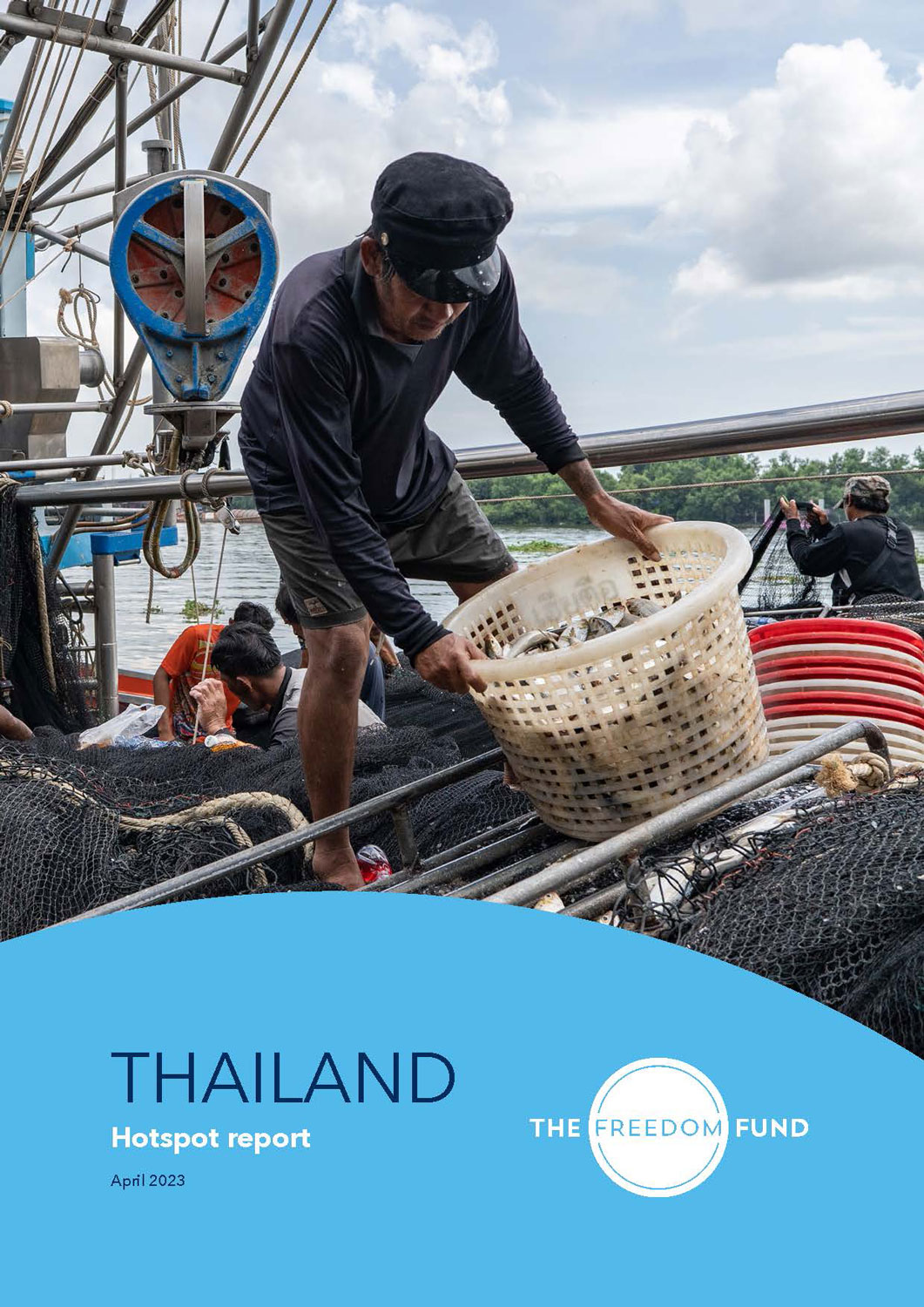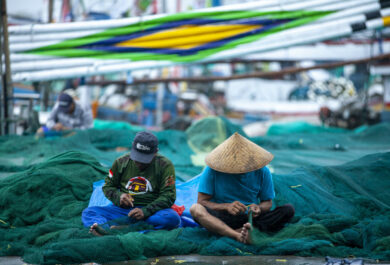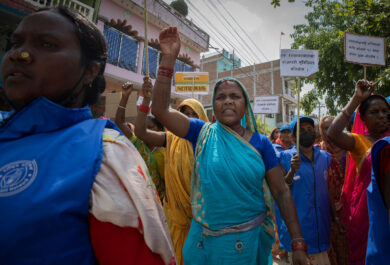Key information
- Hotspot launch
- January 2021
- Total investment
- $16,594,552
- Lives impacted
- 87,965
- Focus areas
-
- Forced labour
- Human trafficking
What we do
In partnership with Humanity United, the Freedom Fund’s Thailand program aims to create a robust enabling environment to allow corporations, government officials, and migrant workers to work in parallel to eradicate labour abuses in the seafood sector. Specifically, the program seeks to catalyze market-based leverage, empower workers and survivors, and incentivize regulatory action to counter a climate of impunity.
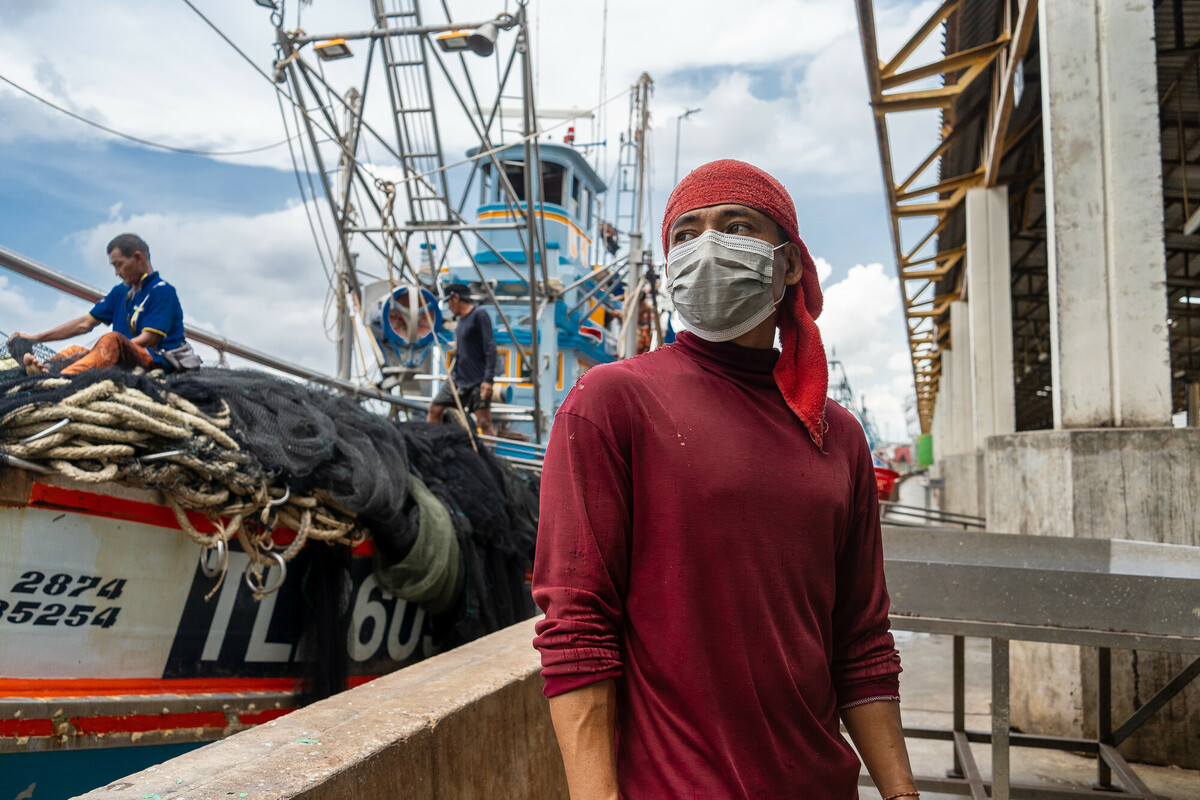
Forced labour in seafood
In Thailand, overfishing and illegal, unreported and unregulated fishing has driven up costs, incentivizing the use of trafficking and forced labour. Most workers in the seafood industry – 90%, by most estimates – are migrants from Myanmar, Cambodia, and Laos recruited by predatory brokers. Recruited from vulnerable communities and promised favourable employment conditions, these migrants often incur debt from their recruitment, job placement and transportation. These debts are paid with direct deductions from workers’ earnings, allowing employers and brokers to frequently use debt manipulation to inflate the debt and force people into bonded labour.
